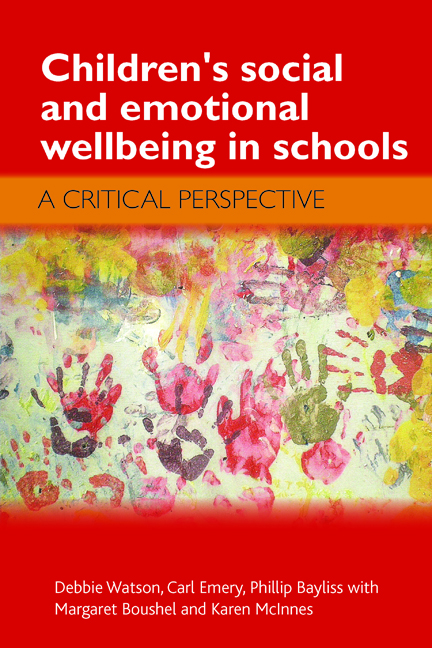Chapter 10 - ‘A golden thread’ – children’s rights and their contribution to the wellbeing discourses
Published online by Cambridge University Press: 01 September 2022
Summary
Introduction
This chapter further develops Chapter 9 in that it recognises the importance of children developing personal dispositions and attitudes and the right and opportunities to express their agency, autonomy, choices and concerns. It explores the potential for rights-based perspectives to contribute to discourses on child wellbeing. There are several reasons why this might be a fruitful line of enquiry. A rights-based perspective, because of its focus on contexts, entitlements and relationships, may serve to broaden the focus of wellbeing theories to include greater attention to the ‘social body’ and the ‘body politic’ (Scheper-Hughes and Lock, 1987). The embodied nature of wellbeing through this multidimensional approach to bodies will be further explored here. I will argue that attention to a theorised and wellarticulated notion of children's rights is an essential element of a holistic discourse of emotional and social wellbeing.
The chapter begins by introducing the concept of rights and considering the attention to children's rights in recent UK legislation and policy and its impact in school settings. This is followed by a brief examination of approaches taken to children's rights in the wellbeing literature. The debates within children's rights discourses in relation to some key concepts – ‘rights’, ‘generation’ and ‘capacity’ – are then examined with reference to empirical research, and their potential contribution to key concepts of children's social and emotional wellbeing is considered.
Two research studies in particular will be drawn on to illustrate the discussion. One is an evaluation of the Rights Respecting Schools Award project (Sebba and Robinson, 2010), the other is based on my PhD study, which explored how adults working in education and other child welfare settings made sense of children's rights and how this impacted on their approach to practice (Boushel, forthcoming). For this reason, as in the previous chapter, this one is written using the first-person singular pronoun.
Legal and moral definitions of ‘rights’
‘Rights’ are usually defined as claims of entitlement against a person or organisation. They are often divided into two types: legal and moral. Legal rights are entitlements enforceable within existing law in a specific jurisdiction. Moral rights are rights claimed under ethical principles, which may or may not be legally enforceable. The development of rights-based theories is often associated with Western philosophy, but they are a common feature of many philosophical and religious traditions.
- Type
- Chapter
- Information
- Children's Social and Emotional Wellbeing in SchoolsA Critical Perspective, pp. 157 - 174Publisher: Bristol University PressPrint publication year: 2012
- 1
- Cited by

